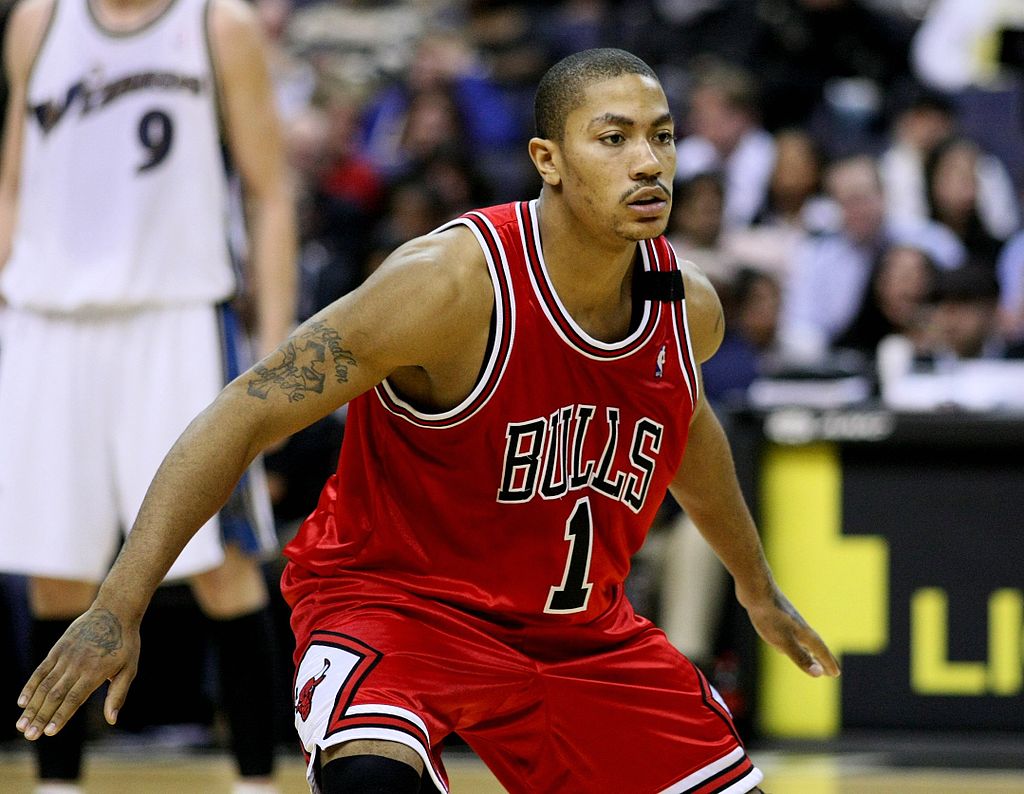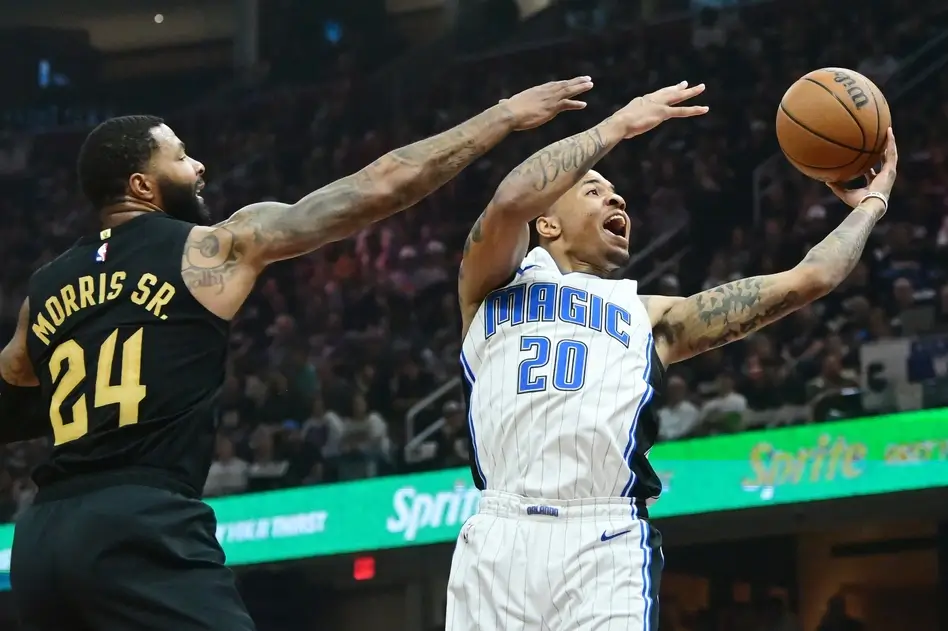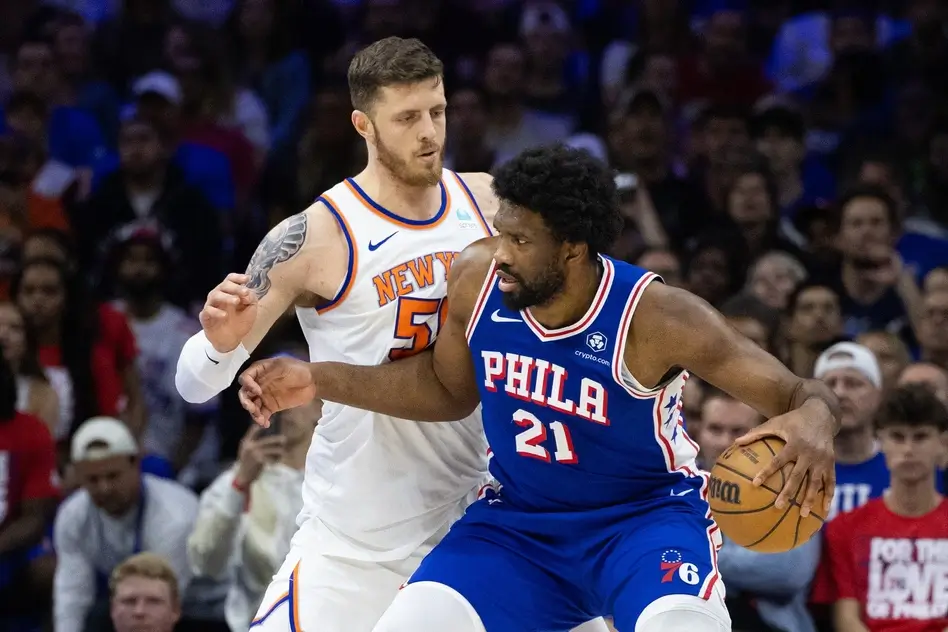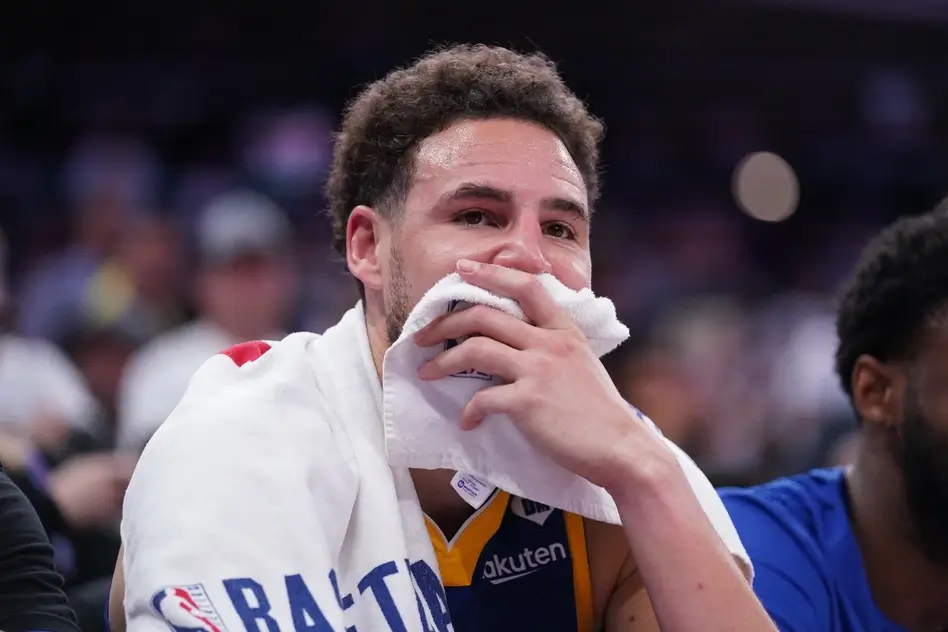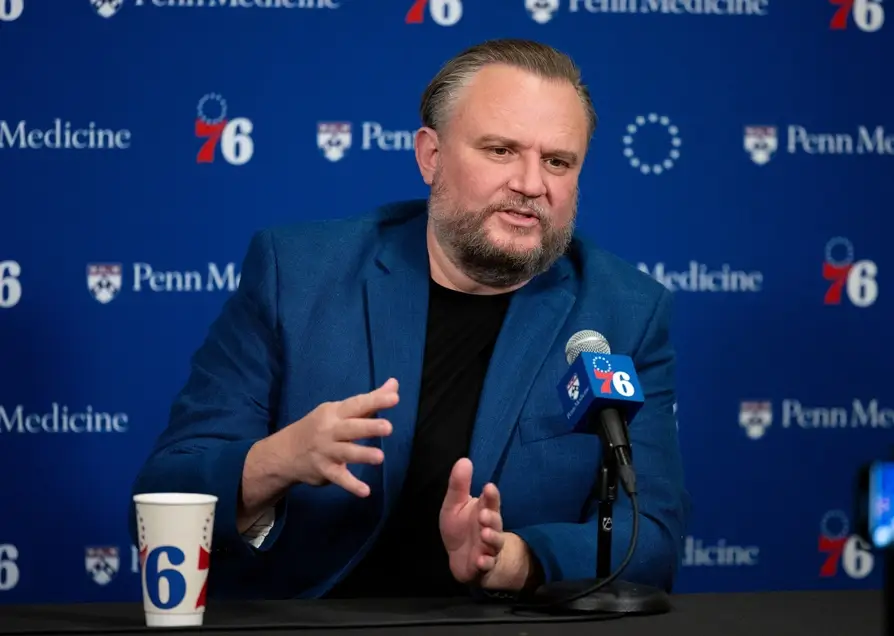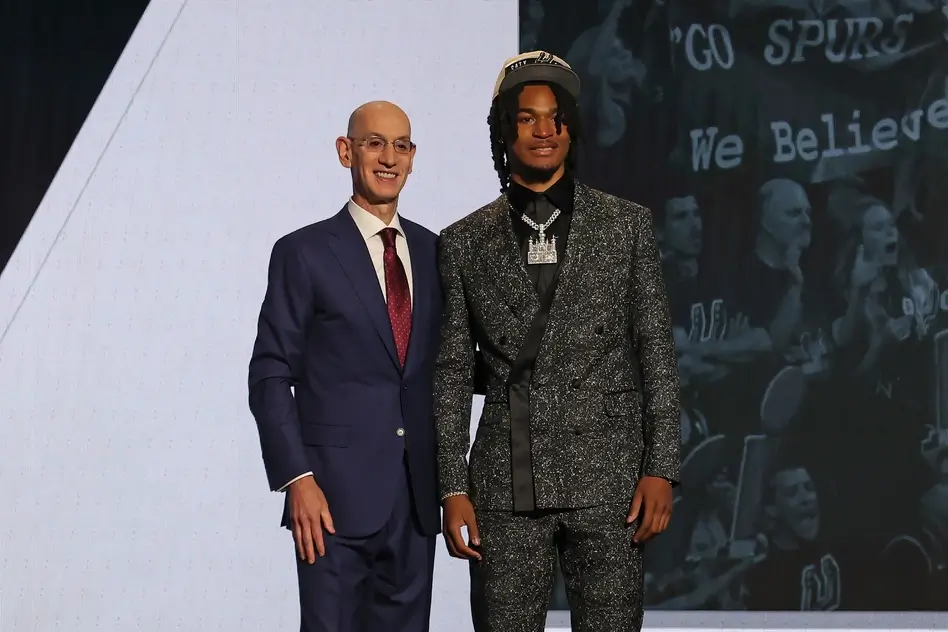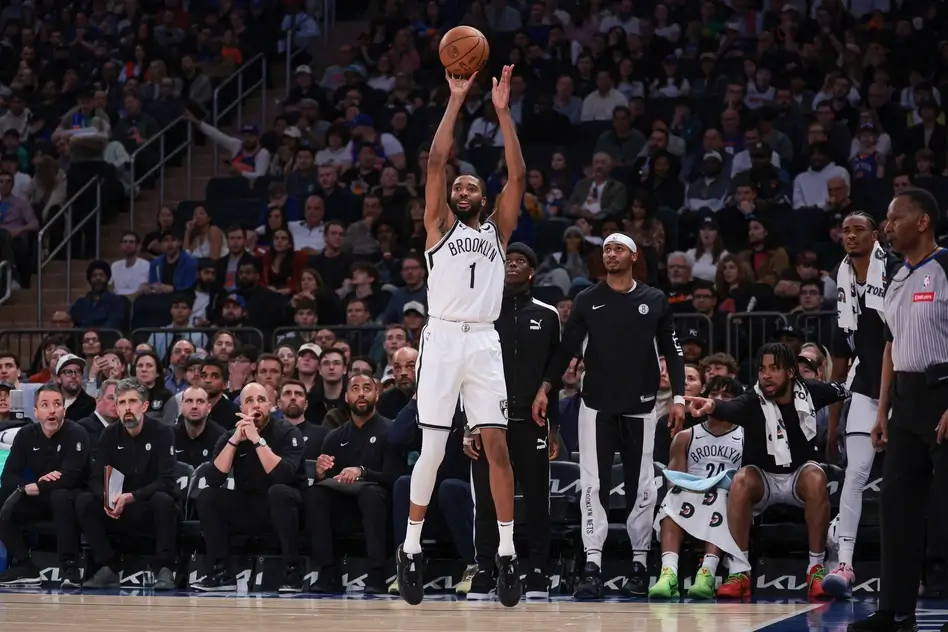There are more individual seasons than you would likely imagine in the race for the worst NBA MVP of all time.
The Maurice Podoloff Trophy seems like an easy award to give out. Voters simply pick the Most Valuable Player in the league in a given year. While the best NBA MVP seasons are years of monster production, be it for a player or a team or both, there are some years where the pool to pick from is so thin that the numbers look just awful compared to the seasons around them.
Those seasons are what we will be focusing on here.
Worst NBA MVP of all time
Here are the worst NBA MVP winners ever.
Allen Iverson, 2000-01
Only Allen Iverson could be on both our best and worst NBA MVP lists. Iverson was a one-man team as he led the brutal Philadelphia 76ers to 56 wins and the No. 1 record in the East. He averaged 31.1 points, 4.6 assists, and 2.5 steals per game with zero supporting cast, somehow leading the league in scoring without any other option to take the defenses away from him.
Shaq was MVP the previous year and even though his stats weren’t quite as huge, they were still MVP worthy. He averaged a double-double with 28.7 points and 12.7 rebounds per game, while almost blocking three shots per contest.
His win share of 14.9 was better than Iverson’s 11.8. He was also much more efficient, doing his work in far fewer minutes. Iverson, though, was flashier, and the voters sometimes love flashy.
Bill Walton, 1977-78
This one is interesting because Walton won the award despite only playing 70% of the season because of injury. Sure, the Portland Trail Blazers were to start the season 50-10 when Walton played, but his 8.4 win shares were behind fellow superstar Kareem Abdul-Jabber (12.1), and also lesser names like George Gervin (12), and David Thompson (12.7). Walton played in just 58 games, Abdul-Jabbar in just 62, so as a result both Gervin and Thompson were in the mix.
Picking a winner out of the four depends on if you are looking for value-added to the team (Gervin or Thompson) or value when playing (Kareem). Either way, the answer isn’t Walton.
Kobe Bryant, 2007-08
We will get to an award Kobe Bryant should have won later, but let’s focus here on one he shouldn’t have.
Like a certain mailman further down the list, this was sort of a lifetime achievement award in a year with no clear frontrunner and as an apology for previous opportunities missed. Kobe averaged 28.3 points and 5.4 assists per game along with 13.8 win shares. Chris Paul and LeBron James were better than Kobe in almost every advanced metric, with Paul’s double-double in points (21.1) and assists (11.6), along with 17.8 win shares, standing out as the most deserving player that year.
Wes Unseld, 1968-69
In some ways, Wes Unseld‘s MVP should be a thing of legend. He was the fifth leading scorer on his own team and is the lowest scoring MVP in history at 13.8 points per game. His 18.2 rebounds per game were impressive, but does his offensive ineptitude (relatively speaking) mean he deserved the MVP over Willis Reed who was averaging 21.1 points and 14.5 boards per night for the Knicks?
Unseld is also the last rookie to win the NBA MVP award and only the second after Wilt Chamberlain to do so. His outlet passing from the key was flashy enough to get him noticed and after three MVPs on the bounce for Wilt, this might be the first case of narrative replacing logic in an MVP award. The new kid on the block beat out a more established name in Reed despite not having the stats.
Oscar Robertson, 1963-64
Oscar Robertson was 0.1 rebound away from a second career triple-double (31.4 points, 9.9 rebounds, 11.0 assists per game) and his 20.6 win shares were ridiculous. Problem is that Robertson was playing in an era with Wilt Chamberlain. Chamberlain had a decline in his stats, yet finished averaging 36.9 points, 22.3 rebounds, and 5.0 assists per game.
Wilt also put up the second most win shares in a single season in history with 25.0 as part of a San Francisco Warriors team that led the Western Conference with 48 wins.
Robertson was great, but if you wanted to argue that Wilt and Kareem could have 10 MVPs each I would probably hear that out.
Derrick Rose, 2010-11
A case of voters simply looking for a change here. Derrick Rose had a fine season in 2010-11. The problem for Rose is that LeBron James was better in every single category except for assists per game (Rose was 0.7 per game better) and three-point shooting (Rose won this by 0.02 percent). LeBron’s numbers were 26.7 points per game (Rose had 25), 7.5 rebounds per game (Rose was at 4.1), and 15.6 win shares (Rose was 13.1).
Rose was the best player on a Bulls team that won 62 games, but much of that was due to a lockdown defense that he was a bit-part player in. James had won the award the previous two years and when he announced he was leaving for Miami in a sham of a TV interview his MVP chances were done.
Also, spare a through for Dwight Howard who propelled a nothing Magic team to 52 wins as Defensive Player of the Year while averaging a double-double (22.9 points and 14.1 rebounds).
Willis Reed, 1969-70
It is a bold move to steal the MVP award from the logo. Willis Reed had a great season where he averaged 21.7 points, 13.9 rebounds, and 2.0 assists per game for the Knicks. He also led the New York team to the best record in the NBA (60-22) in a time when that meant more than individual performance in the eyes of many voters.
That is the only explanation as to how Reed won the MVP over West as he was voted in as a contender as the worst NBA MVP of all time.
West was a player in the middle of his most elite run in the league. His Lakers went just 46-36, but the Logo went for 31.2 points, 4.6 rebounds, and 7.5 assists per game. He carried the team without stars Wilt Chamberlain and Elgin Baylor through injury and should have won the award.
Steve Nash, 2004-05
The first of Steve Nash‘s entries on this list was his worst statistical season of the two. Nash was revitalized in a Mike D’Antoni offense that promoted quick ball movement, intelligent decisions, and rapid shooting.
Nash, one of the smartest players in the game, excelled as he put up a double-double at 15.5 points and 11.5 assists per game. The problem was that he might not even have been the most valuable player on his own team as Amar’e Stoudemire averaged 26.9 points and 8.9 rebounds per game. He certainly wasn’t the best player in the league as Shaq took over in Miami to average a double-double of his own with 22.9 points and 10.4 rebounds each time out.
Dave Cowens, 1972-73
This one is hard to explain. It is not like Hall of Famer Dave Cowens was a bad player, far from it in fact, but his 1972-73 MVP season is not one that should have ever happened. Cowens put up a double-double on the season with 20.5 points per game and 16.2 rebounds per game, but his 0.1 rebound per game edge over Kareem Abdul-Jabbar was the only area where he outpaced the Milwaukee Bucks star.
Kareem put up 30.2 points per game, 16.1 rebounds per game, and 5.0 assists per game as he led the Bucks to the best record in the West. The only area where Cowens really shines is team record, but the 60-22 record of the Bucks is not massively worse than the 68-14 record of the Celtics. Kareem will just have to settle for the six MVP awards he ended his legendary career with.
Karl Malone, 1996-97
Everyone loves The Mailman, but Karl Malone‘s 1996-97 MVP award should have gone to Michael Jordan. The best big man in the game, and the best player in the Western Conference, Malone put up 27.4 points per game, 9.9 rebounds per game, and 4.5 assists per game, as he finished 0.1 rebounds per game short of a double-double. His tandem with John Stockton was at its finest as he pushed the Jazz to a 64-18 record.
The problem was that Jordan was propelling the Bulls to a comfortably better 69-13 record in the East while also leading the league in scoring at 29.6 points per game. There is certainly a thought that Malone got this award for a career body of work in a time when the MVP award was locked in Jordan’s closet, but that doesn’t make the single-season any less undeserving.
Steve Nash, 2005-06
I do feel a little bit sorry for Steve Nash and him having both of his MVP seasons on this list. Interestingly, Nash was actually a better statistical player in his second NBA MVP season than his first. He put up 18.8 points, 10.5 assists, and 4.2 rebounds per game while leading the Suns to a 54-28 record. His ball-handling and game management was everything voters had come to expect out of the Canadian point guard and it was in all respects an outstanding season.
The problem for Nash’s MVP legitimacy is that out on the West Coast, Kobe was doing Kobe things. Bryant averaged an insane 35.4 points per game while taking a roster including Kwame Brown to a 45-37 record. This was also the season where Kobe dropped 81 in a game, a remarkable offensive feat because given his teammates it didn’t even feel like a selfish endeavor. Ironically, Nash’s best statistical season came the very next year, right after his back-to-back MVPs.
Bill Russell, 1961-62
Just consider for a moment that Wilt Chamberlain once put up a season where he led his team to a 49-31 record while averaging 50.4 points per game, 25.7 rebounds per game, and 2.4 assists per game. Yes, it was a different era, but that record was the third-best record in the league as Chamberlain was the entire Philadelphia Warriors offense in just his third NBA season.
To be fair to Russell, his dominance wasn’t exactly low-key. The Celtic’s big man averaged a double-double with 18.9 points, 23.6 rebounds, and 4.5 assists per game. He also was the most important cog in a dominant team that led the NBA in wins finishing 60-20 on the year. That would normally be enough to make the MVP conversation a no-brainer, but what Wilt did (this was also the year of his 100 point game) will never be done again.
[spreaker type=player resource=”show_id=4112709″ width=”100%” height=”200px” theme=”light” playlist=”false” playlist-continuous=”false” chapters-image=”true” episode-image-position=”right” hide-logo=”false” hide-likes=”false” hide-comments=”false” hide-sharing=”false” hide-download=”true”]


